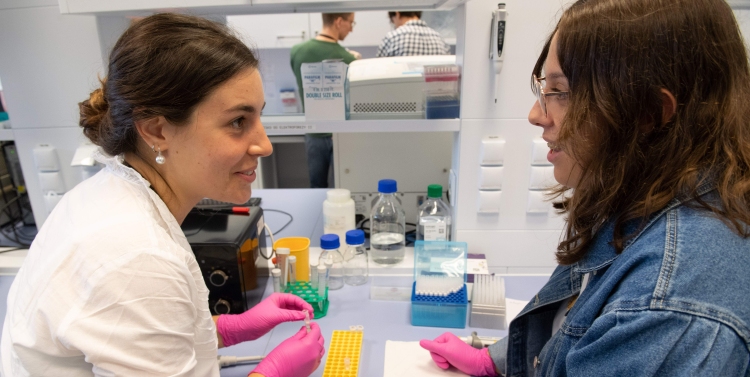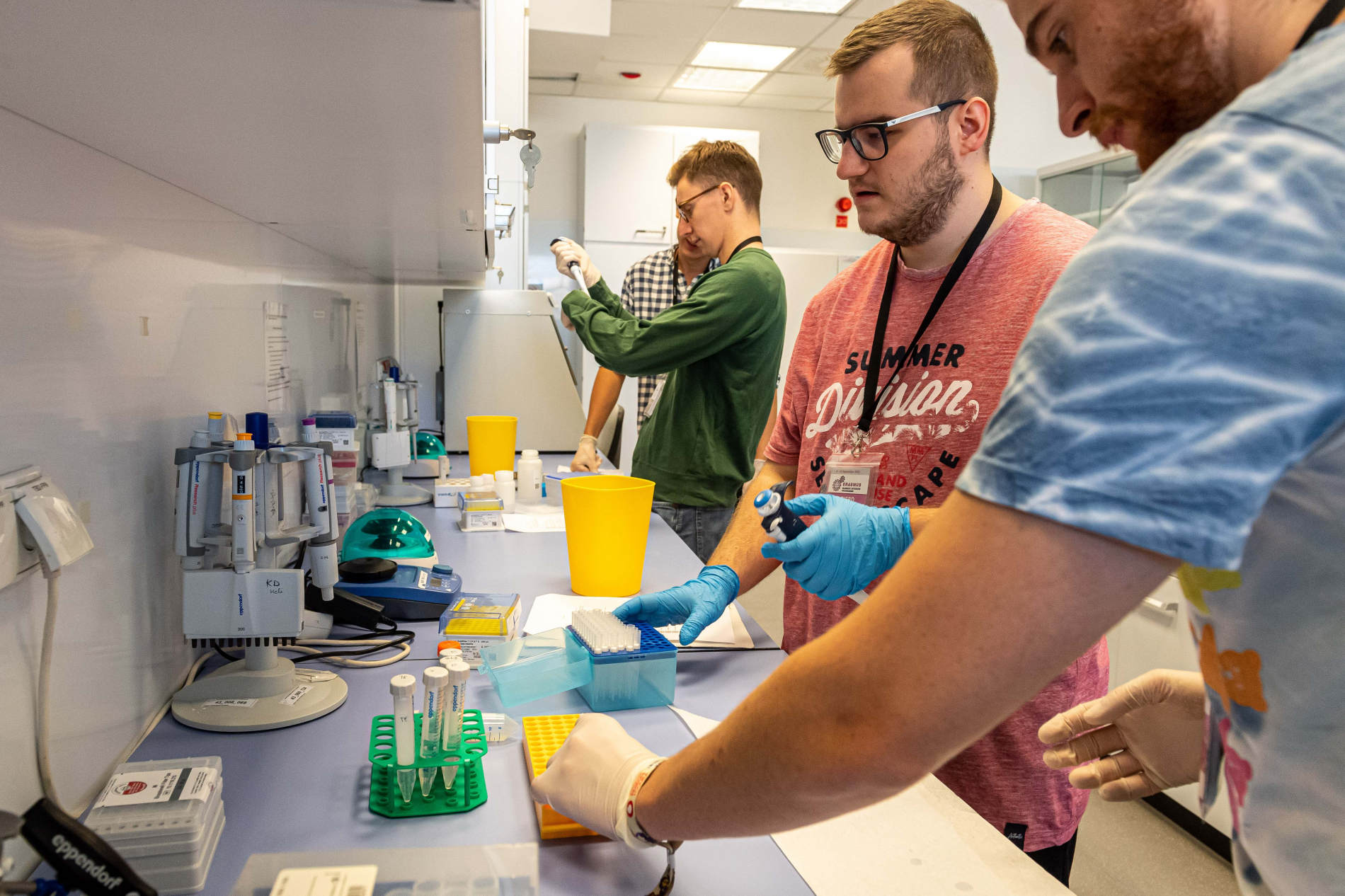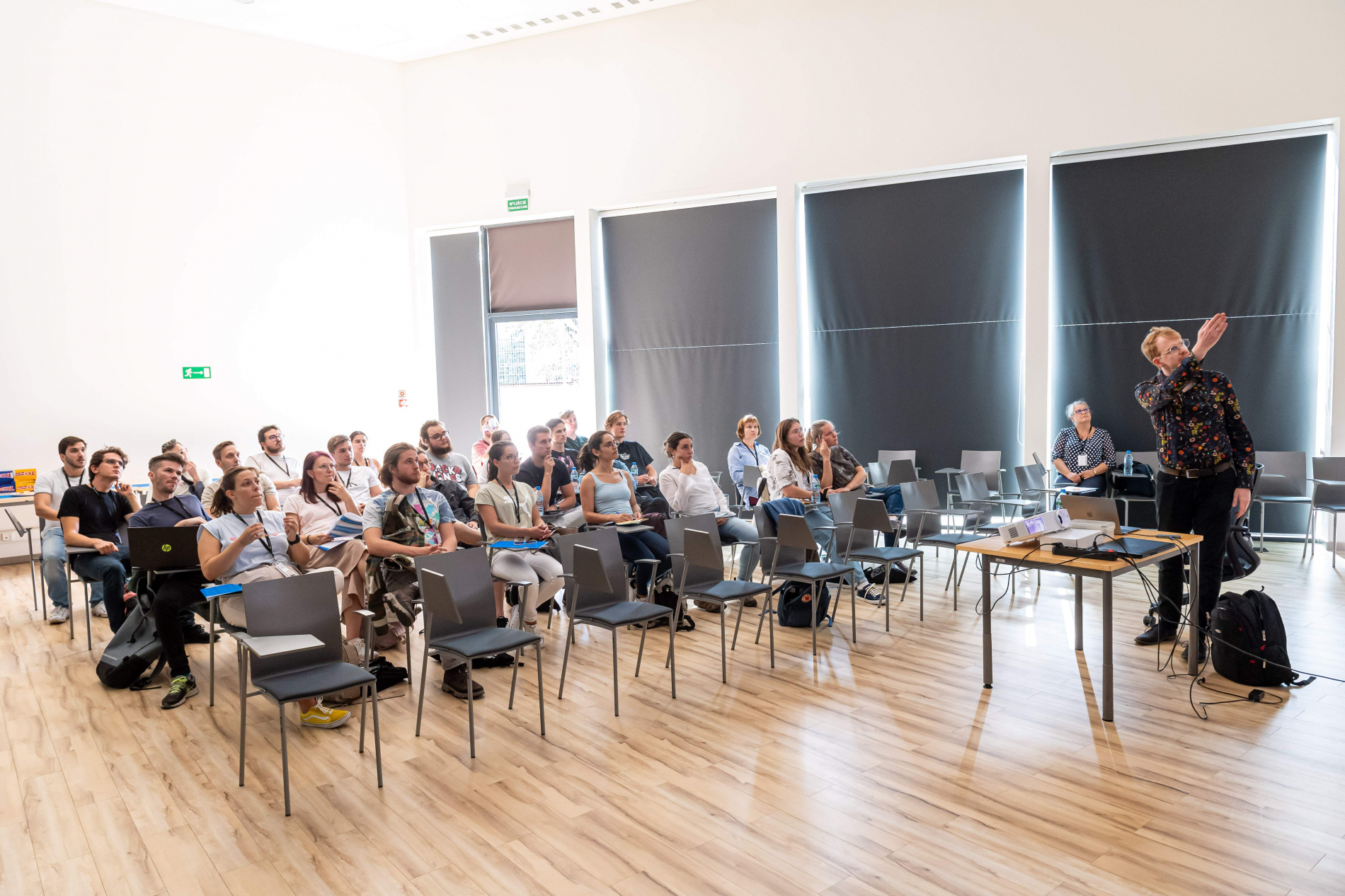YOUR BROWSER IS OUT-OF-DATE.
We have detected that you are using an outdated browser. Our service may not work properly for you. We recommend upgrading or switching to another browser.
Date: 13.09.2022 Category: international cooperation, workshops/presentations/trainings

40 people from Poland, Slovakia, Portugal, and the UK have attended the course entitled “Modern Topics and Methods in Biomedical Research” – the first meeting of its kind at our university organised as part of the EU's Blended Intensive Programme (BIP).
The University of Aveiro (Portugal), Comenius University (Slovakia), Oxford University (UK), Wrocław Regional Teaching Hospital, the nanotechnology company Lipid System z o.o., and the Department of Biomedical Engineering at Wrocław University of Science and Technology are institutions whose students and staff took part in laboratory classes, workshops, and lectures dedicated to the latest developments in biomedical medicine and engineering.

The on-site part lasted until September 10. After that, already in the online format, the participants will continue their projects in small groups and under the guidance of tutors. The project will end on October 14.
– We started our course in late August with introductory lectures on the Zoom platform, and now we’ve moved on to the most important part, delivered on the premises – explains Joanna Bauer, PhD, Eng. of the Faculty of Fundamental Problems of Technology, the originator and coordinator of the event.
The participants attended a workshop at the Research and Development Centre of the Voivodship Specialist Hospital in Wrocław in Kamieńskiego Street, where they prepared a visualisation of DNA in an electrophoretic gel. – They’ve also visited the Lipid System company – adds Dr Joanna Bauer. – There, they were introduced to liposomal technology, which is used in the production of the latest generation of directional drug carriers, manufactured using innovative processes inspired by molecular dynamics.
They also listened to several lectures on the latest technologies and trends in medicine. Dr Tanveer Tabish from Oxford University spoke about the practical applications of nanotechnology, tissue engineering, bioengineering, and biochemistry in personalised diagnostic and therapeutic solutions, and Dr Jaroslav Varchola from Comenius University discussed several aspects of quantum biology, biophysics of consciousness, and quantum brain theory. Another researcher, Mateusz Popek, PhD, Eng. from the Faculty of Fundamental Problems of Technology explained the applications of additive manufacturing and 3D printing in medicine.
In the days that followed, the participants expanded their knowledge of 4P Medicine ( Personalised, Predictive, Preventive, and Participatory Medicine) and became familiar with the latest research trends and technologies related to innovative prevention, diagnosis, and therapy. – By carrying out joint projects, they’re gaining experience of working in international teams – says Dr Joanna Bauer. – Meanwhile, through meetings with Lipid System employees, they found out about the current requirements and expectations of biomedical entrepreneurs – she adds.

Some staff and students from the Department of Biomedical Engineering have already participated this year in another Erasmus Blended Intensive Programme (BIP), coordinated by the University of Aveiro, where they deepened their knowledge of nanomedicine together with their peers from Valladolid University in Spain and Marmara University in Turkey.
The Blended Intensive Programme (BIP) is a series of short but intensive courses where individual educational elements are delivered jointly by a minimum of three Erasmus+ universities. It consists of a compulsory online part and a classroom part, organised by one of the partners in charge of the training. The aim is to develop the participants' teamwork skills, share experiences related to innovative teaching forms, and educate students and staff on the current issues and trends in a given field.
Our site uses cookies. By continuing to browse the site you agree to our use of cookies in accordance with current browser settings. You can change at any time.